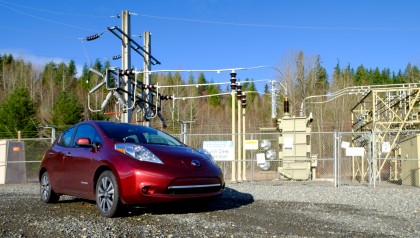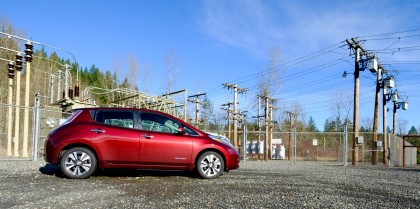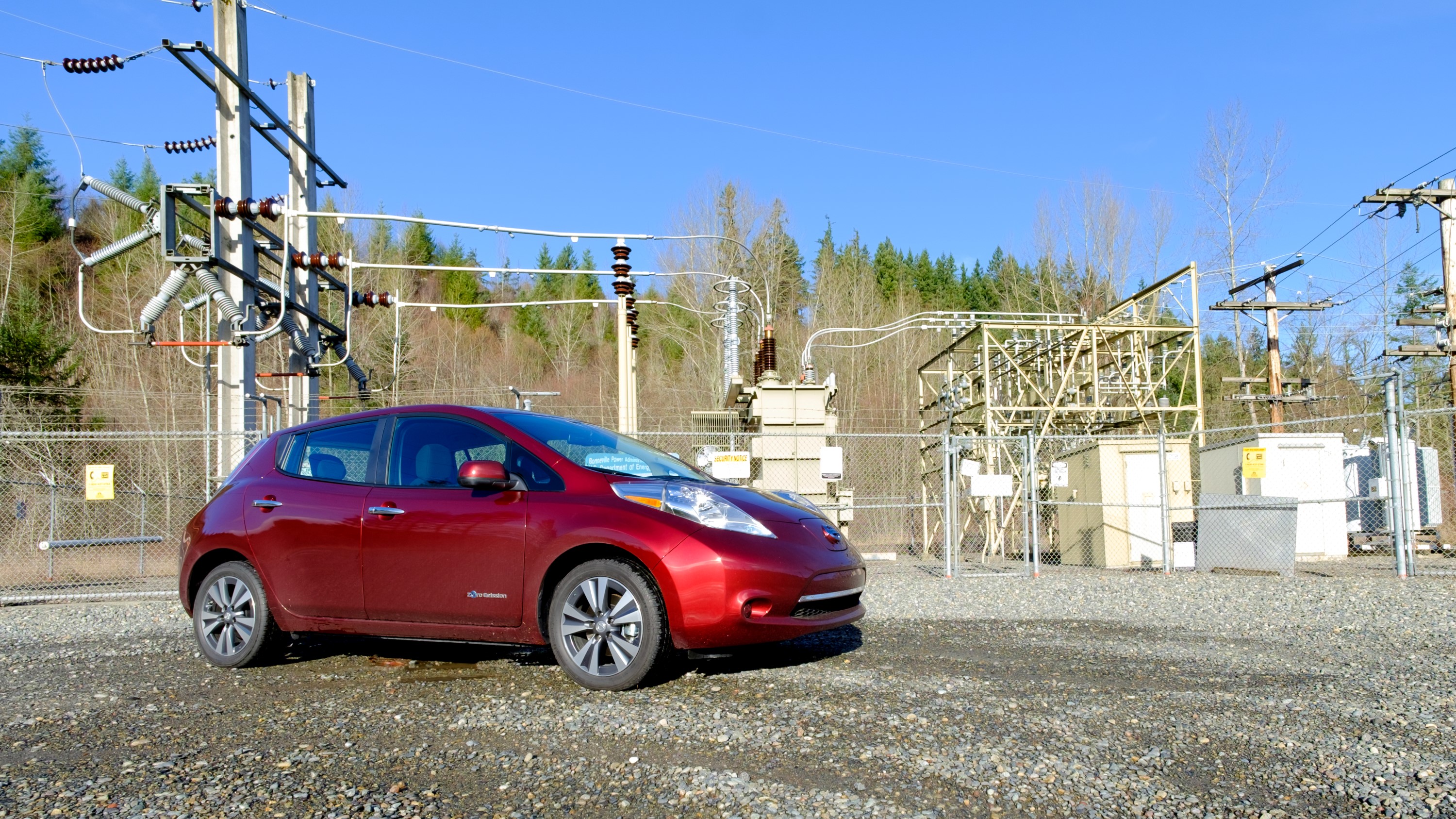Why you can trust TechRadar
Nissan's Leaf is a car designed for those that want to break-free of oil dependence, or are simply tired of paying for gas at the pump, but at a price. The as-tested MSRP of $36,620 (£25,640 for the similarly equipped Acenta trim, Australia only has one trim for AU$40,000) is quite steep, especially if you can't maximize the $7,500 federal government tax credit.
If you do qualify for the tax credit, there's also a $3,500 rebate if the car is financed through Nissan Motor Acceptance Corporation (NMAC), which knocks $11,000 off the MSRP to bring it down to a reasonable $25,620. There's also the lease option that takes the rebates into account too.

However, unless you really want an EV, similarly-priced internal combustion engine cars at the same MSRP, or even the price after rebate, have much higher quality interior materials, driver assists and better infotainment systems.
We liked
The new 30 kWh battery is a major improvement that makes the Leaf more attractive to rural residents like myself. While the previous 24 kWh battery was adequate for a 40-50-mile round trip commute without charging, there wasn't much excess capacity for multiple detours. Having an additional 23 miles of additional rated range can be that extra distance needed to push those hesitant of EV's towards broader acceptance.
CHAdeMO quick charging technology, or any quick charging technology, is a must have nowadays for EVs. Being able to stop for 30-minutes and gain 70% battery capacity makes EVs easier to live with and take on trips with less inconvenience, just make sure your state has a good EV quick charging infrastructure.
Nissan's Around View Monitor is excellent, but I've yet to use a 360-degree camera that I didn't like. It's a simple feature that may seem archaic to self-parking systems in cars such as the VW Passat, but I prefer to park the car myself than rely on computers to steer me into place.
We disliked
NissanConnect provides a fresh face to the previous Leaf's ancient infotainment system, which was still stuck in 2010, but it's a far cry from anything I'd consider good. Just give us Android Auto or Apple CarPlay and engineer a charging station locator app that is actually up to date and compatible with the two. While I enjoy customizing the home screen on my smartphone, stop trying to transplant the same feature to the car. I want a UI that's designed for quick glances with minimal touch screen input while driving.
Sign up for breaking news, reviews, opinion, top tech deals, and more.
I'm not a fan of Bose premium sound or anything Bose, with the exception of the QuietComfort noise-cancelling headphones. The sound quality may please those that have never experienced good audio quality,, but it's not something that makes music enjoyable to my ears. Having to pay for the Bose option to get the excellent Around View Monitor is a travesty, too.
Fit and finish of the Nissan Leaf was quite bad. The gaps between the tail lights and rear fascia (bumper) were inconsistent with a tight fit on one side and a large gap on the other side. I also had to snap the interior panels in the cargo area back into place because they weren't installed securely. There's still the issue with paint matching between the metal body panels and the plastic front and rear fascias: in certain sunlight, the colors don't match.
This isn't a worn-down press car problem either, as I was the first one to receive this 2016 Leaf in the Seattle area. These are problems I've noticed with previous Leafs too, including a 2015 Leaf SL press car in which I had to reinstall the switch panel for the rear seat heater switch. My own Leaf has a rear fascia that wasn't aligned properly either.
Final verdict
The new battery pack in the 2016 Leaf may entice more buyers to embrace the electric car, but the car lacks in infotainment and driver assist technology. If you're currently leasing a Leaf that's nearing the return date and looking to pick up another one, the 2016's battery pack alone is worth trading up.
If you bought your Leaf, like I did, the hit you'd take from the terrible trade-in value isn't worth it to get 23-miles of range. Yes, I looked into this possibility. Nissan doesn't offer an upgrade to the 30 kWh battery for existing owners either, unfortunately.

Now for everyone else, should you buy a Leaf or EV? It's a tough question – if it makes financial sense for you, once you take maintenance and fuel costs into consideration, go for it. If you care about the environment and live in an area where electricity comes primarily from eco sources such as: hydroelectric, solar or wind, it's a solid, eco-conscious choice.
I made the decision to buy my wife a 2015 Leaf because we had a 2011 VW Routan (a rebadged Dodge Caravan) that required $90 synthetic oil changes, got 17 mpg for most of her driving and ate through brake rotors and rear pads every 15,000 miles. I wanted something with virtually zero maintenance. Have there been times I regretted my purchase?
Sure, when my wife complains her car won't charge in time for her next trip, I wish the car had more range, which the 30 kWh battery easily solves. But my wife loves her car, despite my subtle nudges to push her back into a plug-in hybrid electric vehicle, such as the Chevy Volt.
I also kept my gasoline-powered 2014 Mazda5 Sport with a 6-speed manual transmission for longer trips, which my wife isn't too proficient at driving yet, for my driving. I'll admit the Leaf could never be a primary car for me, but I enjoy driving on windy roads and driving manual transmission, which the Leaf does not deliver.
However, if I ever had to commute to an office or spent a lot of time in traffic, the Leaf would be a fine commuting car. Just don't expect any driver assists or much technology outside of the powertrain.
If you must have an EV now, the 2016 Leaf offers fairly good range, but the competition heats up in 2017 with the upcoming Chevy Bolt, Tesla Model 3 and even the next-generation Leaf.
